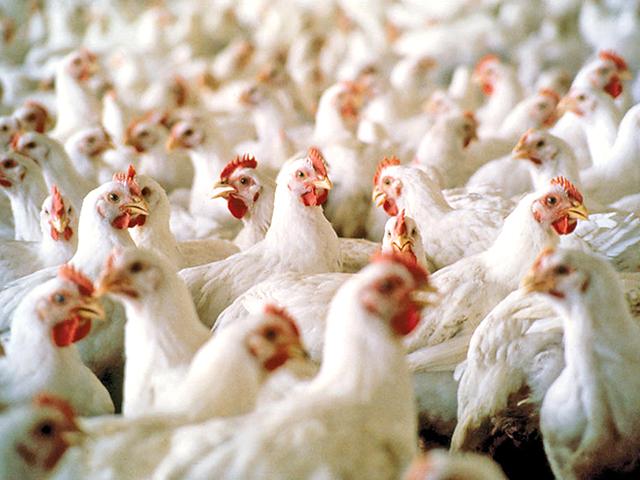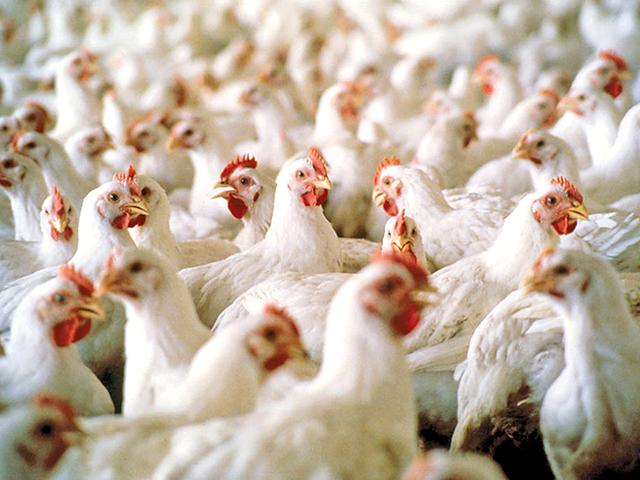Ag Policy Blog
Ag Secretary Rolls Out New Small Meatpacker Loan Program and Tackles Poultry Grower Contracts
USDA on Thursday will announce $200 million to expand meatpacking capacity through a new loan program, along with releasing a new proposed rule to protect contract poultry growers and invest in ways to increase training programs for workers in the meat and poultry processing industries as well.
Citing the Biden administration's efforts to promote competition in the economy, Agriculture Secretary released details on the multiple announcements tied to a new report that will also be released Thursday, "Promoting Competition in Agricultural Markets." That report was required by President Joe Biden's executive order last summer to promote competition across the economy.
Each of the moves detailed Thursday build on Biden's focus on unfair market practices by meatpackers. The White House kicked off 2022 back in early January highlighting plans to diversify the packing industry and increase regulatory actions to tighten enforcement of the Packers and Stockyards Act. See "White House Moves Against Big Packers," https://www.dtnpf.com/…
The competition proposals and funding plans are rolling out as Vilsack is set to testify Thursday morning before the Senate Agriculture Committee slugged as "Opportunities and Challenges Facing Farmers, Families, and Rural Communities."
POULTRY TOURNAMENT CONTRACTS
The Biden administration's move against the "tournament" pay system for contract poultry growers will prompt the vertically integrated chicken industry to pushback. Under the tournament system, farmers receive a base pay for delivery of birds to process, but bonuses then are ranked based on the health of the birds delivered. Poultry farmers have complained for years about unfair treatment in the ranking system while the major processors maintain the system improves efficiency. As a March survey released by the National Chicken Council stated, "Similar to all businesses, those who are most successful at raising chickens will tend to earn more income than those who are less successful."
Still, poultry growers often cite that companies will provide chick flocks that are less healthy, or fewer chicks, as well as lower quality inputs to producers who complain or refuse to make changes to their operations required by the packers.
Last August, Perdue Farms and Tyson Foods agreed to pay a combined nearly $35 million to settle claims from Alabama contract growers that the tournament systems pushed them into debt while the companies colluded to keep farmer pay low. The lawsuit also included claims against other major players including Koch Foods, Pilgrim's Pride and Sanderson Farms.
In its industry survey, the National Chicken Council's study, done by FarmEcon LLC, cited that the $68,455 median salary for chicken farmers "was significantly higher than both all-farm households and all U.S. households." The report stated 60% of chicken farmers earned household incomes that exceeded the median household income in the country. The same report showed the lowest 20% of growers make less than $20,000 a year as well.
To counter the tournament system, USDA will propose a rule to require poultry processors to provide new information to contract growers, as USDA stated, "increasing transparency and accountability in the poultry growing system. Processors will be required to provide details on inputs provided to farmers and information about differences in inputs among farmers being ranked. The meatpackers also will have to disclose the level of control and discretion exercised by the poultry processor, and the financial returns farmers can expect from their contract "based on the rage of real experiences of other growers. Farmer contracts also will be required to contain guaranteed annual flock placements and density. The CEOs of the poultry companies will be required to sign off on the compliance disclosure.
P[L1] D[0x0] M[300x250] OOP[F] ADUNIT[] T[]
USDA also will open an inquiry over whether some practices by processors in the tournament system "are so unfair that they should be banned, or otherwise regulated." USDA will seek input from stakeholders on whether the tournament system could be restricted or changed to create a fairer marketplace.
USDA noted the proposed poultry rule is the first of three rules under the Packers and Stockyards Act that the Biden administration intends to pursue. USDA has been working since the early days of former President Barack Obama's administration to finalize rules defining fairness and competition actions between packers and farmers.
PACKER CAPACITY LOANS
Following up on money originally provided to USDA through the American Rescue Plan, USDA is now making available $200 million for a new Meat and Poultry Intermediary Lending Program. The program will provide grants of up to $15 million to "nonprofit lenders, including private nonprofits, cooperatives, public agencies and tribal entities." Those lenders and other nonprofits will use the funds to create revolving loans related to meat and poultry processing businesses. USDA noted the loans could go to help businesses buy land as well as build or expand facilities and upgrade equipment.
"These funds will provide much-needed financing to independent meat and poultry processors to start up and expand operations. By introducing competition at this key bottleneck point in the supply chain, these investments will help raise earnings for farmers and lower prices for consumers," USDA stated.
Last July, USDA originally announced $500 million to increase competition in the packing industry, tying the funds to the need to increase resiliency in the food supply chain.
TRAINING MEAT PROCESSING WORKERS
The third leg of the stool comes from $25 million that the National Institute of Food and Agriculture (NIFA) will use to boost a pair of existing funding programs.
First, $5 million will go to Extension Risk Management Education and the Sustainable Agriculture Research Education (SARE) programs. These programs will help develop training and educational materials to help smaller to medium-sized farmers and ranchers. The funds also will be used to train meat and poultry processing workers for local and regional niche markets, such as mobile processing units to help expand market demand for fresh meats, local markets, on-site process, farm-to-fork restaurants and grocers.
Another $20 million will go to the Agricultural Work Force Training (AWT) programs at technical and community colleges to help boost support for meat and poultry processing workforce programs.
PROMOTING COMPETITION REPORT
The competition report released Thursday lays out USDA's strategy for promoting competition in agricultural markets. That includes the actions in meat and poultry markets, but also focuses on other sectors such as fertilizer and seeds as well. The report highlights the negative impacts of concentration in areas such as shipping as well. USDA states the report includes two new initiatives. Those include a "top-to-bottom review of USDA programs to ensure they promote competition. Second, USDA will update guidance to improve on industry claims regarding how animals are raised to ensure consumers are getting what they are paying for.
More information about the Meat and Poultry Intermediary Lending Program can be found at https://www.rd.usda.gov/…
Other information can be found on USDA's focus on the supply chain at www.usda.gov/meat
Chris Clayton can be reached at Chris.Clayton@dtn.com
Follow him on Twitter @ChrisClaytonDTN
(c) Copyright 2022 DTN, LLC. All rights reserved.





Comments
To comment, please Log In or Join our Community .